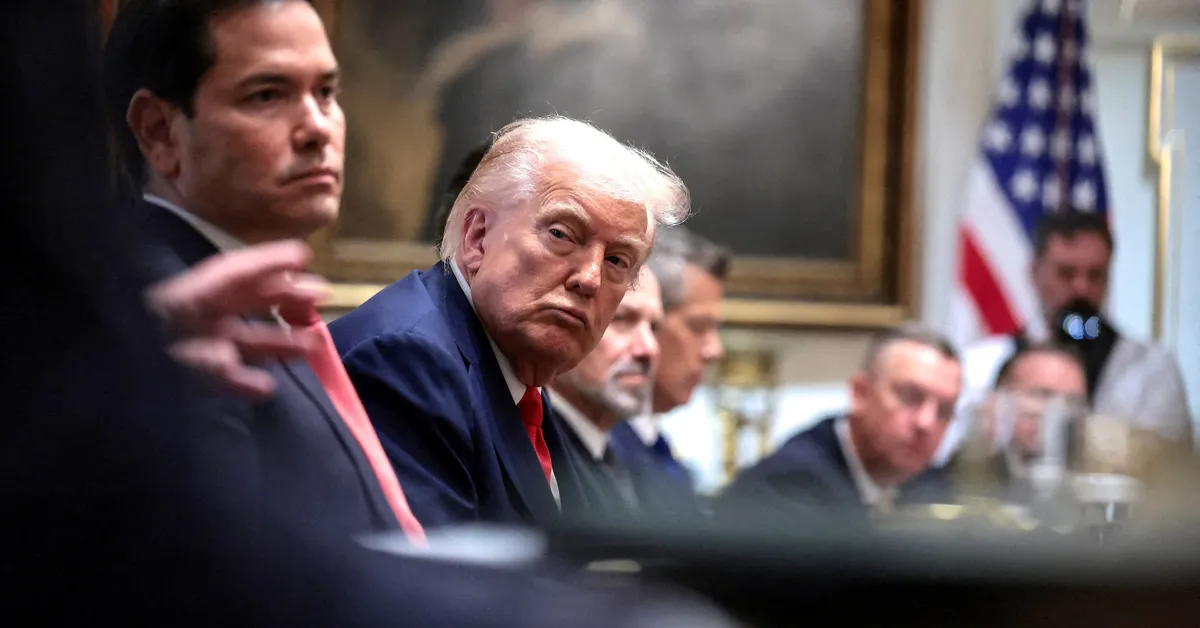
The recent agreements between the White House and major pharmaceutical companies mark significant steps toward achieving the administration's goal of lowering U.S. prescription medicine prices. In July, President Trump sent letters to 17 prominent drug manufacturers urging them to reduce their prices. Notably, Pfizer and AstraZeneca have become the first companies to formalize deals with the administration, setting a precedent for future negotiations.
At an event held in the Oval Office, AstraZeneca's CEO, Pascal Soriot, announced that the company plans to offer some of its medications at discounts of up to 80% off their standard list prices through the upcoming TrumpRx website, which is scheduled to launch next year. Additionally, AstraZeneca will benefit from a three-year tariff exemption aimed at localizing the production of their products within the United States.
Currently, patients in the United States face the highest prescription drug prices globally, often paying nearly three times more than those in other developed countries. President Trump has intensified his efforts to pressure drugmakers to align their prices with those seen abroad or risk facing severe tariffs. Just last month, Trump threatened to impose 100% tariffs on pharmaceutical imports, further escalating the pressure on the industry to comply with price reductions and shift manufacturing operations back to the U.S.
More than 70 million individuals are enrolled in Medicaid, the state and federal program designed for low-income individuals. However, drug spending under Medicaid pales in comparison to that of Medicare, which serves seniors and individuals with disabilities. In 2021, Medicare's drug spending reached an astonishing $216 billion, while Medicaid's gross spending was approximately $80 billion. While Medicaid typically benefits from the lowest drug prices in the country, additional savings from the new agreements could be minimal, according to Craig Garthwaite, a professor at Northwestern University's Kellogg School of Management.
Garthwaite noted, "If you look at AstraZeneca's portfolio, I don't think there are many drugs where significant discounts will be provided to Medicaid." This sentiment was echoed by Rena Conti, an associate professor at Boston University, who remarked that while AstraZeneca's agreement may protect it from tariffs, it is unlikely to have a meaningful impact on the rising health insurance premiums and out-of-pocket drug costs for U.S. consumers.
In response to the current political climate and pressure from the administration, Soriot has emphasized AstraZeneca's commitment to the U.S. market. In July, the company revealed plans to invest $50 billion in U.S. manufacturing and research and development by 2030. This investment includes the construction of its largest manufacturing site globally in Virginia, alongside expansions in five other states across the country.
Moreover, AstraZeneca announced in September that it would sell its diabetes and asthma medications directly to cash-paying patients in the U.S. at discounts of up to 70% off the list prices, another strategic move responding to the ongoing pressure from the Trump administration. Soriot has actively promoted AstraZeneca as a "very American company," underscoring its evolving identity as it focuses on its largest market.
As AstraZeneca prepares to list its shares in the United States alongside its existing listings in the UK and Europe, the implications of these agreements for U.S. patients remain uncertain. While the deals may benefit the pharmaceutical companies, experts question whether they will provide substantial relief for Americans grappling with the high costs of prescription medications.
In conclusion, while the recent agreements between the White House and major pharmaceutical firms like Pfizer and AstraZeneca signify a potential shift in the landscape of U.S. prescription drug pricing, the long-term benefits for consumers and the healthcare system continue to be a topic of debate among industry experts.